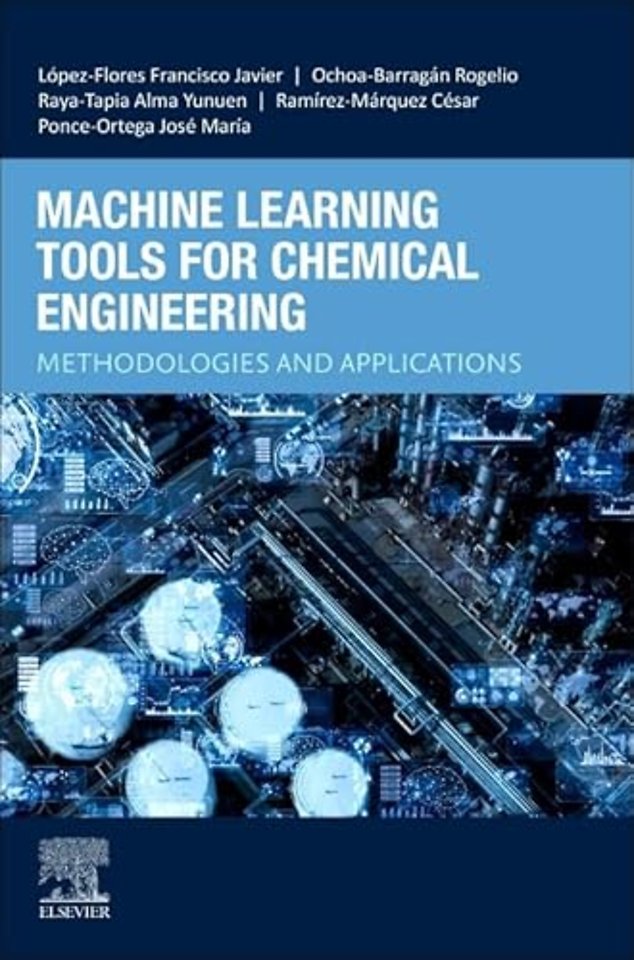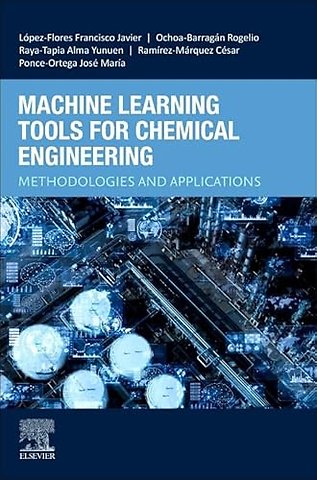Machine Learning Tools for Chemical Engineering
Methodologies and Applications
Samenvatting
Machine Learning Tools for Chemical Engineering: Methodologies and Applications examines how machine learning (ML) techniques are applied in the field, offering precise, fast, and flexible solutions to address specific challenges.
ML techniques and methodologies offer significant advantages (such as accuracy, speed of execution, and flexibility) over traditional modeling and optimization techniques. This book integrates ML techniques to solve problems inherent to chemical engineering, providing practical tools and a theoretical framework combining knowledge modeling, representation, and management, tailored to the chemical engineering field. It provides a precedent for applied Al, but one that goes beyond purely data-centric ML. It is firmly grounded in the philosophies of knowledge modeling, knowledge representation, search and inference, and knowledge extraction and management.
Aimed at graduate students, researchers, educators, and industry professionals, this book is an essential resource for those seeking to implement ML in chemical processes, aiming to foster optimization and innovation in the sector.

